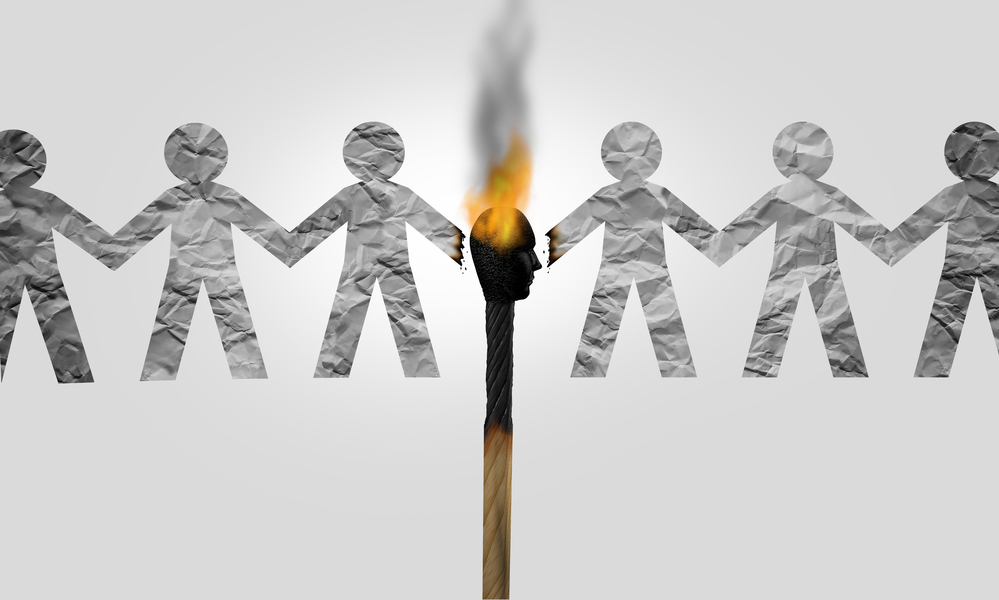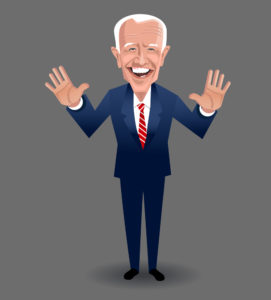
A few days ago, Politico published a dense piece featuring a number of intellectuals and academics, left and right, suggesting ideas to “unite” the country, as President Biden proposed to do. As a non-US citizen, I am interested more in the method than in the substance of the different ideas proposed in the article.

What is it that does this “unifying”? I30 suppose we are dealing, by necessity, with highly symbolic moves, which won’t necessarily make everybody happy. (This is always difficult in politics, even when we are not directly dealing with taking money out of somebody’s pocket to give it to somebody else.) Such moves should, broadly speaking, restore the conditions for a more tranquil partisanship. The problem with “political polarization”, in the US as much as in Europe, it is a matter of tone as well as of political posture. How can we restore public debate in which people stop at shouting at each other?
Nick Eberstadt has a point that sounds reasonable to me:
America will not be able to do much healing in the next four years if the 47 percent of America who voted against the president-elect are treated as a subjugated population. Yet knowingly or not, this is how the election’s victors are behaving. A large minority of our nation can scarcely air its opinions in the academy or, increasingly, in the establishment media. Their speech is ever more policed in the workplace and online by rules tantamount to “victor’s justice.
Of course that’s more easily said than done. And some other of the proposals Politico has assembled seem to be pointing in quite the opposite direction. Some of them are down to heart: Abraar Karan proposes a push for better face masks as a way to convince more Americans to use face masks, Caitlin Rivers some sort of national mourning for COVID19 victims.
A fair number of Poltico’s proposals are, however, concerned with history, and they stress the need for a shared narrative which resembles the various streams of “revisionist” history dominating in the last few years. There is certainly a lot to learn in these accounts of history – but is this something that would actually unite Americans as describe above? It seems to me that it would actually go the opposite way, strengthening the tendency toward the sense of “victor’s justice” Eberstadt cautions against.
Hence my question: is “uniting” Americans after a much heated electoral campaign something that people really care about? Is it simply a posture for reassuring the losers? Is it something only those who lost care about? In a battle so symbolically intense, is there any genuine intention to meet halfway, on either side?
It seems to me that one component of political polarization is the belief in a basic difference in the moral fiber of one’s opponent. The more intense the fight, the greater the impression that something essential is at stake: and in these later years, it is seldom policy-related, it is far more personality-related, particularly after Donald Trump. Self-righteousness becomes ubiquitous in a polarized political spectrum. How do you back down? And is there anybody who really wants to do so?

READER COMMENTS
Philo
Jan 30 2021 at 6:22pm
I am certainly not “unitable.” I think that most of what President Biden will do will be bad for the country, and likewise for most of what ex-President Trump would have done, had he been re-elected. My plan under either leader would be to keep my head down and, when I could not avoid participating in collective action, to drag my feet.
Nor is the country at large “unitable.” My only hope is that the victorious Democrats do not overplay their hand to the extent of provoking political violence (to which I would be a dismayed spectator).
Grand Rapids Mike
Jan 31 2021 at 9:20am
Culturally the country is devided more than ever, the prime source of the polarization. It cannot be fixed.
Billy Kaubashine
Jan 31 2021 at 10:03am
Another component of political polarization is the scope and reach of government power. The bigger government gets, the higher the stakes for both those who benefit from and are threatened by government.
Ted Durant
Feb 1 2021 at 6:19pm
Polarization IS Politics, and I think James Buchanan would offer a straightforward explanation for that in the US. The Democrat and Republican parties have a duopoly (or duopsony, depending on how you frame it) position in control of approaching 50% of GDP. Unless or until the rules of the game are changed, the incentives clearly favor increased polarization as a means of preventing the rules from being changed.
Ted Durant
Feb 1 2021 at 6:21pm
I wrote that before seeing Arnold Kling’s new article. Really 🙂
Fred_in_PA
Feb 6 2021 at 9:26pm
Do you have a link to the Kling piece? Thanks.
Fred_in_PA
Feb 6 2021 at 9:20pm
You ask, “[I]s “uniting” Americans after a much heated electoral campaign something that people really care about? Is it simply a posture for reassuring the losers? Is it something only those who lost care about? In a battle so symbolically intense, is there any genuine intention to meet halfway, on either side?”
I suspect that there are three (or four?) answers depending upon who “people” is.
If we mean the great mass of citizens, I suspect the driving factor is that politics is low-involvement behavior for most of us. So, “No”, most people don’t really care — especially, on the winning side — and I wouldn’t expect them to expend any effort in meeting halfway. Maybe the losing side cares a little more, and hence will move a little more.
If we’re talking about the 15%-20% who are more politically involved (est. in the NYT’ of Oct. 20), I suspect the great majority of them are rather intensely tribal. So (again) “No”, they don’t really care and “uniting Americans” is just a pose for manipulating the other side. There is certainly no intention of giving away anything strategic in order to meet them part way.
If we’re talking about President Biden and other successfully elected figures, it rather depends on whether they see the game as statecraft or as politics. If it’s statecraft and a desire to be seen favorably by history, then “Yes”, the broader the coalitions we can build the greater the chances our programs will succeed, can last, and will be seen by future Americans as progress. But I’m afraid that most of the newly elected are more devoted to political success, which — from here to the next election — requires feeding the tribalism.
Comments are closed.